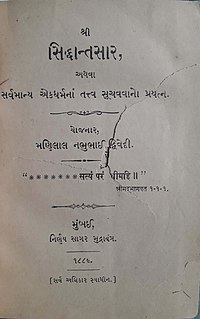 W
WAgainst the Current: Essays in the History of Ideas (1979) is a collection of essays by the 20th-century philosopher and historian Isaiah Berlin.
 W
WCosmic Evolution: The Rise of Complexity in Nature (2001) is a book by Harvard astrophysicist Eric Chaisson. It examines cosmic evolution which includes the history of natural evolution from the Big Bang to the present from the perspective of the emerging multi-scientific discipline of Big History. It offers an explanation of why simple structures billions of years ago gave way to more complex structures, such as stars, planets, life, and human beings in complex civilizations. It is written for a general audience interested in science.
 W
WThe Discoverers is a non-fiction historical work by Daniel Boorstin, published in 1983, and is the first in the Knowledge Trilogy, which also includes The Creators and The Seekers. The book, subtitled A History of Man's Search to Know His World and Himself, is a history of human discovery. Discovery in many forms is described: exploration, science, medicine, mathematics, and more-theoretical ones, such as time, evolution, plate tectonics, and relativity. Boorstin praises the inventive, human mind and its eternal quest to discover the universe and humanity's place in it.
 W
WThe Enlightenment: An Interpretation is an influential two-volume history of the Age of Enlightenment by Peter Gay, published between 1966 and 1969. The first volume, subtitled "The Rise of Modern Paganism," won the National Book Award in 1967. The second volume, subtitled “The Science of Freedom," was published in 1969.
 W
WA History of Philosophy is a history of Western philosophy written by the English Jesuit priest Frederick Charles Copleston originally published in nine volumes between 1946 and 1975. As is noted by The Encyclopedia Britannica, the work became a "standard introductory philosophy text for thousands of university students, particularly in its U.S. paperback edition." Since 2003 it has been marketed as an eleven volume work with two previously published other works by Copleston being added to the series.
 W
WA History of Western Philosophy is a 1945 book by the philosopher Bertrand Russell. A survey of Western philosophy from the pre-Socratic philosophers to the early 20th century, it was criticised for Russell's over-generalization and omissions, particularly from the post-Cartesian period, but nevertheless became a popular and commercial success, and has remained in print from its first publication. When Russell was awarded the Nobel Prize for Literature in 1950, A History of Western Philosophy was cited as one of the books that won him the award. Its success provided Russell with financial security for the last part of his life.
 W
WLectures on the History of Philosophy
 W
WThe Metaphysical Club: A Story of Ideas in America is a Pulitzer Prize-winning 2001 book by Louis Menand, an American writer and legal scholar, which won the 2002 Pulitzer Prize for History. The book recounts the lives and intellectual work of the handful of thinkers primarily responsible for the philosophical concept of pragmatism, a principal feature of American philosophical achievement: William James, Oliver Wendell Holmes, Jr., Charles Sanders Peirce, and John Dewey. Pragmatism proved to be very influential on modern thought, for example, in spurring movements in modern legal thought such as legal realism.
 W
WA New History of Western Philosophy is a 2010 book by the British philosopher and theologian Anthony Kenny, consisting of a history of Western philosophy from the ancient Greeks to the present day. The book consists of four separate parts which were originally released separately during the period 2004–07. The book is dedicated to memory of Georg Henrik von Wright.
 W
WOur Posthuman Future: Consequences of the Biotechnology Revolution is a 2002 book by Francis Fukuyama. In it, he discusses the potential threat to liberal democracy that use of new and emerging biotechnologies for transhumanist ends poses.
 W
WThe Seekers is a non-fiction work of cultural history by Daniel Boorstin published in 1998 and is the third and final volume in the "knowledge" trilogy.
 W
WSiddhantasara is a 1889 Gujarati book on the history of philosophy by Indian writer and philosopher Manilal Dwivedi. It is a historical critique of the world's religious philosophies. The book deals with the evolution of religious sentiment and attempts to establish the superiority of the Advaita philosophy over other religious philosophies.
 W
WThree Critics of the Enlightenment: Vico, Hamann, Herder is a collection of essays in the history of philosophy by 20th century philosopher and historian of ideas Isaiah Berlin. Edited by Henry Hardy and released posthumously in 2000, the collection comprises the previously published works Vico and Herder: Two Studies in the History of Ideas (1976) – an essay on Counter-Enlightenment thinkers Giambattista Vico and Johann Gottfried Herder – and The Magus of the North: J. G. Hamann and the Origins of Modern Irrationalism (1993), concerning irrationalist Johann Georg Hamann.